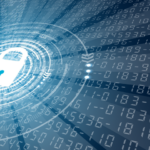As the world grapples with a health pandemic and work from home becomes the new norm, businesses find themselves facing an old enemy once again, but this time with a much stronger effect. The enemy is none other than cyber crime, the digital disease plaguing the binary world. This article will highlight why cyber crime has become a stronger beast in the face of COVID-19 and how the pandemic has changed the definition and parameters of cybersecurity, temporarily if not permanently.
A newfound work from home culture has been forced upon the world, keeping in line with social distancing norms. While employees find work from home as a fresh new challenge and experience, companies are finding it as a new hurdle to overcome. For some, the work from home scenario is a ticking time bomb in terms of cyber crime. Industries like finance that rely on fixed and controlled office premises to contain the spread and leakage of any sensitive information are now struggling to find a way to continue operations without compromising on security. Many other industries and sectors that deal with highly sensitive information are facing the same challenge of keeping security as high as productivity. Only those companies that had the foresight and wisdom to plan their cyber security strategy in case of an emergency like this are able to operate without the fear of cyber threats. Sadly, that number is low. Many organisations, in fact, almost every organisation, whether public or private, did not plan for this contingency and are now falling short on their security score. With instant and immediate guidelines by regulatory bodies to close premises and establish work from home for all businesses as soon as the onset of COVID-19 took place, companies had no choice but to adapt with whatever little security guidelines they had left in place.
Inadequate cybersecurity training among employees is one of the cruellest pain points in this regard. Having a professional with a ceh performing penetration tests on the company’s network won’t cut it anymore since the network perimeter has been turned on its head. Unlike the usual, employees are now connected from remote locations through unsecured, unsanitised and unchecked home WiFis. There is no telling if the staff’s computers and devices are already compromised or not, since many sophisticated malware hide themselves from being detected by anti-virus and other detection software.
Another major pain point of organisations is phishing and social engineering. It is a famous saying in cyber world that there is no patch for human stupidity. Phishing is the most prevalent form of cyber threat looming over the business world. Common netizens are also easiest targeted by phishing attempts. As a bait tactic, phishing depends on the human tendency to act out of greed and fear. In 2020, there is no greater fear among humans than that of contracting COVID-19. Hackers, as expected, are utilising our fear to their maximum benefit by spamming people’s mailboxes and inboxes with the promise of providing information about the virus’s spread, vaccine availability, infected people’s geolocation and other such services. Employees and even individuals are untrained in the skill of spotting fake emails, websites, apps, messages, links and software, which makes it further easier for hackers to lure and infect their target’s devices with their desired kind of malware.
It is, thus, clearer than ever that cyber security has a long journey to cover. Education and awareness are the two main factors that can substantially bring about a change in the security of the digital world. Apart from defensive and offensive, forensic security education (for example, CHFI course) should also be promoted heavily by the appropriate authorities on a global level. Hopefully, this year marks the onset of the deep realisation that needs to take place globally if we ever wish to live safely in a technologically advanced world.








